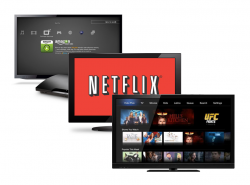Welcome to this week’s WNR. It’s another short one, and while the caliber of news stories is ultimately to blame, the lack of sleep I’m experiencing due to the World Cup cannot be discounted as a factor. It looks like my prediction last week has proved to be 100% correct, with the four teams I mentioned all making the semi-finals (even if it was by the skin of their collective teeth). In fact, I think I’ve managed to predict the result (but not the score) of all of the matches from the knock-out stage onwards (which is how I came up with the Brazil vs Germany, Netherlands vs Argentina semi-final line-up). I did not put money where my mouth is, unfortunately, because I don’t believe in betting and also because I’m an idiot.
Further proof that I’m an idiot comes from the fact that I nearly forgot to mention that this past Thursday was Digital Digest’s 15th anniversary, having been launched on the 4th of July in 1999. Having totally forgot about it until Wednesday night (I’m not in the US, so it’s not like I was bombarded with 4th of July stuff to remind me), I’ve only remembered it just now as I was about to hit the “Publish” button on this post. Anyway, here’s the obligatory Digital Digest in History photo album you can have a look at to see what Digital Digest looked like through the ages, including when it first launched in 1999 (check out the snazzy design!).
Alright, the news.
![]()
Following last week’s copyright smack-down by Australian ISP executive Steve Dalby, Dalby was again on the attack this week when he took part in a Reddit AMA. Speaking in reference to the Australian pay TV monopoly owned by Foxtel, and the company’s deal with HBO to lock-up Game of Thrones from all other outlets (including iTunes), Dalby says that Foxtel is “on borrowed time”.
Dalby says reports prepared by rights holders about Australia’s piracy habits are “BS”, and says that Foxtel’s pricing (which is “447% of the price previously charged by iTunes”) is more to blame for people choosing not to pay. “Making content available in a timely, affordable away will go a long way to tapping into the Australian willingness to pay for legitimate content,” Dalby says.
So what does HBO have to say about all of this? Surprisingly little. CNET spoke to HBO’s VP and GM Sofia Chang at the Game of Thrones exhibit in Sydney, and Chang’s comments were diplomatic, to say the least.
“Unfortunately, with this type of popularity comes this type of activity. However, I’ll say that in Australia you have one of the most liberal windows in terms of when it’s made available on the network and then when it’s made available on digital download,” Chang said.
“So, for example, with season four — the finale was on June 16, and on June 17 we made it available on Google Play and our other digital platforms.”
Make of that what you will. From what I read, it’s HBO’s way of saying that they’re happy with the current Foxtel-monopoly arrangement, and they don’t really care that it is causing record piracy for the show in Australia. Basically, HBO has a premium pricing model in which they rely on a small percentage of users to pay a high price for their content, knowing full well this leads to increased piracy. It works for them, and they know they can’t really complain too much about piracy given that this is the business model they’ve chosen. And HBO’s past comments have reflected their stand on the issue.
In other copyright news, hackers in Argentina have responded to the country’s banning of The Pirate Bay website by hacking and turning the website of a music industry group into a fully functioning Pirate Bay proxy site. The site operated for a full 10 hours before it was eventually taken down.
And over in Switzerland, draft legislation could see pirated downloads from cyberlockers made legal, but BitTorrent (which has an upload component) becoming illegal. Site blocking could also happen as part of sweeping changes in a bid to modernize the country’s copyright laws.
![]()
The digital transition gathers pace as Sweden, thanks to its super-awesome broadband, may be the first country in the world where digital video spending overtakes that of physical media.
According to the estimates of Futuresource Consulting, 2014 is when digital spending for video content in Sweden will top €153 million ($209 million). This compares to to the €146 million ($199 million) estimate for packaged media, which has fallen dramatically in recent years. With digital music already accounting for 75% of sales, when it was only 25% a couple of years ago, it seems digital video will be heading the same way, and not just in Sweden.
Release windows will help to artificially keep discs and subscription TV alive for the time being, and there will always be those (like myself) that still like to buy movies on discs, but it’s clear what direction consumers want distributors to head in. With Netflix maybe coming to Australian soon, it will be interesting to see what kind of effect it has on our one and only subscription TV provider.
While Australians are un-spoilt for lack of choice, it’s a different situation over in the US where Netflix, Amazon and Hulu Plus are all desperately trying to grab and hold onto market share. While Netflix has a huge lead in terms of the number of subscribers, the race to have the best content is a tighter affair. US based investment bank Piper Jaffray & Co has analysed the content being offered by these major streaming providers, and found that, at least for the top rated movies, Netflix was still on top.
For TV shows, Hulu Plus with its TV catch-up origins still has a clear lead (57% of the top 75 series from the last TV season, compared to Netflix’s 20% and Amazon’s 9%). But for movies, Netflix’s 12% of top 50 box office movies compares favorably to Amazon’s 6% (Hulu Plus is way back, with just 1%).
While Netflix has been concentrating on original content, Amazon has been desperately trying to sign up to deals with networks like Fox and CBS to get shows like ’24’ and ‘Under the Dome’. So expect the see the gap narrow over the next few years. Of course, here in Australia, we’d be happy just to have Netflix, but rumors suggest that Amazon and Hulu Plus may not be far behind either.
——
Well, that actually went longer than I thought it would be. Hope you enjoyed reading, and see you next week.



